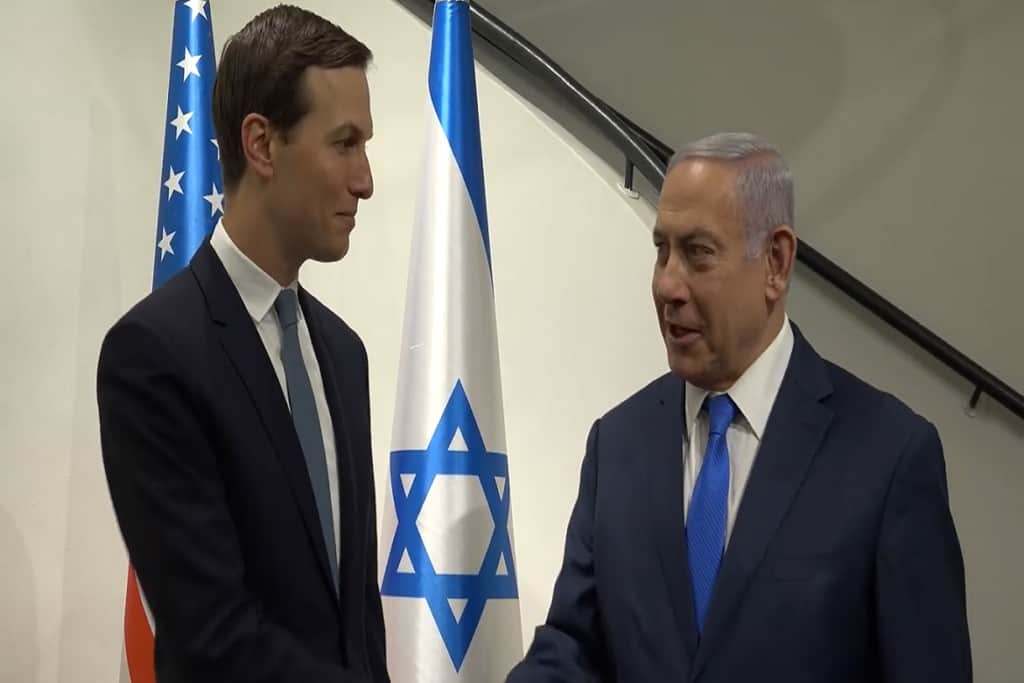By Denis Korkodinov
On June 25, 2019, the presentation of Jared Kushner’s plan for resolving the Arab-Israeli conflict will take place in Bahrain. According the Americans, the plan should ensure peace in the region with large Europan financial investments in Palestine. However, without political concessions, a solution to the conflict between Ramallah and Tel Aviv is impossible.
The son-in-law of US President Donald Trump is trying to draw the Arab world and Europe into the negotiation process between Israel and Palestine. Thus, in response to the resistance of the Palestine Liberation Organization to the American de-escalation plan of the conflict, on June 4, 2019, Jared Kouchner made an official visit to Brussels, where he met with the President of the European Commission Jean-Claude Juncker and Federica Mogherini, who oversees EU foreign policy.
The purpose of this meeting was to convince European leaders to put pressure on Palestine, which, at the moment, is entirely dependent on foreign investment and which, according to the Americans, can later play a decisive role in strengthening relations between the US and Europe. But, Jared Kouchner’s plan raises growing doubts on the world stage, and also most of European leaders are convinced of its lack of transparency.
The inability of Israeli Prime Minister Benjamin Netanyahu to form a parliamentary coalition and the subsequent dissolution of the Knesset further force Washington to put into oblivion its plan to resolve the Arab-Israeli conflict. Among other things, this plan does not take into account the interests of either Tel Aviv or Ramallah, which insists on its international recognition and respect for its territorial integrity.
Nevertheless, Jared Kushner and the team of American “hawks” continue to insist, literally imposing a plan on the parties to the conflict, which not only will not help to secure peace, but, on the contrary, will lead to another escalation of confrontation.
The essence of the plan of Washington is to ensure the economic support of Palestine at the expense of Europe. However, such a measure will be extremely ineffective without the political neutralization of the causes and consequences of the conflict. In addition, the provision of economic assistance to the Palestinians could create a significant disparity in the balance of power between Ramallah and Tel Aviv, which would lead to the need to look for sources of funding later for Israel.
In turn, such a strategy is unlikely to avoid the next arms race and the escalation of the conflict. In addition, European leaders are not eager to allocate significant funds for the project, which has no specific algorithm for its implementation and with very dubious prospects.
It is worth noting that Washington tried to implement a similar plan for resolving the Arab-Israeli conflict in 1986. Then, US President Ronald Reagan sought to convince Riyadh to act as a sponsor of the Palestinian Authority. However, this plan failed because Jordan strongly opposed it, while the White House administration was not ready to negotiate with the Palestinians directly, and the Palestinians, in addition to financial assistance, also expected political advantages that Washington did not intend to provide. Practically the same development is expected in 2019. as a result of Jared Kushner’s initiative.
(The opinions expressed in this article are solely those of the author and do not necessarily reflect the views of World Geostrategic Insights).
Image Credit: U.S. Embassy Tel Aviv







